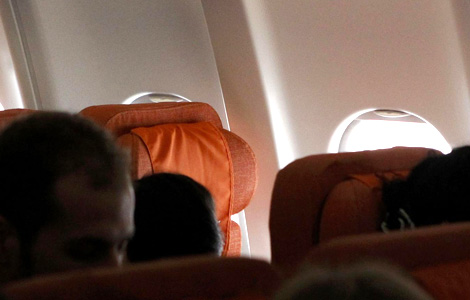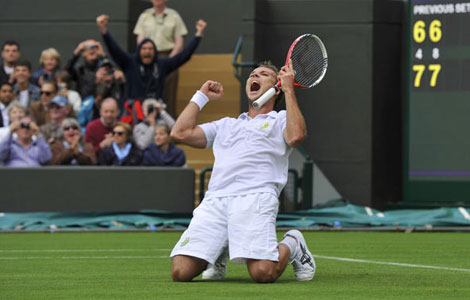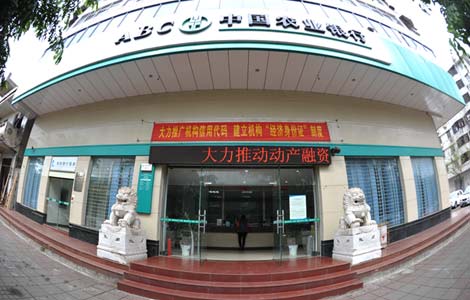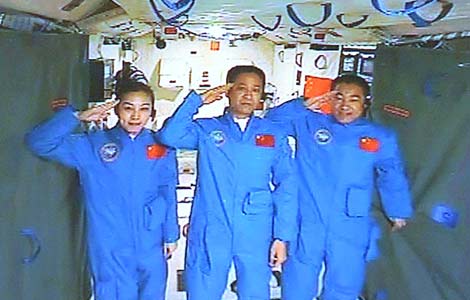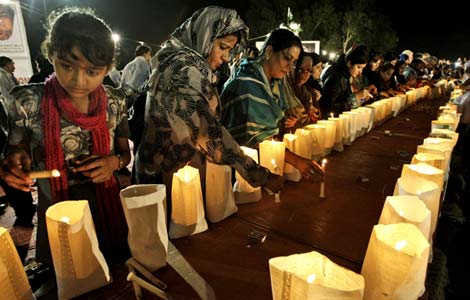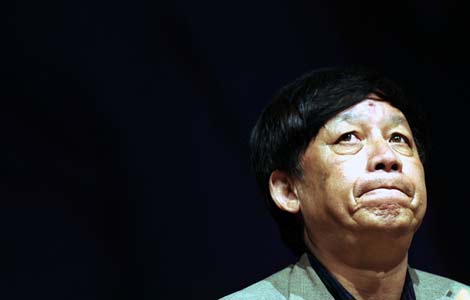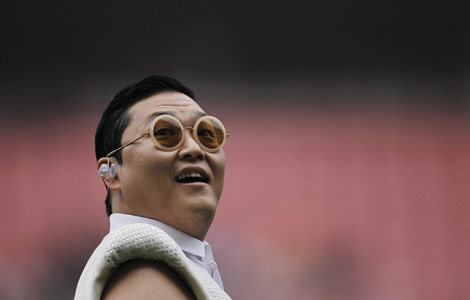Getting the point of Chinese medicine
Updated: 2013-06-25 06:58
By Peng Yining (China Daily)
|
||||||||
Zhang Yinghong, president of the largest school in Brunei that teaches Chinese, said he was proud of the Peace Ark's visit. "It's a beautiful white ship and also a hospital, providing free medical care to the world," he said. "It spreads Chinese culture and traditions. Everyone with an ethnic Chinese background should be proud of it."
|
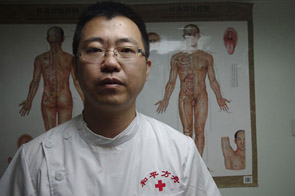 Ding Yu: 40, a specialist in acupuncture and doctor of traditional Chinese medicine.
Getting the needle I've never traveled by ship before and I felt dizzy and uncomfortable even before we left port. My body is very sensitive. I often feel sick on buses and even feel nauseous riding the subway. As the Peace Ark left harbor, the decks shook and I felt as though I were walking in an earthquake. I went back to my cabin and pasted specially made plasters over my ears - a traditional Chinese treatment for seasickness. We believe the plasters, which are made from herbs, will stimulate points on the ears and ease the feeling of nausea. I was the first of the 400 people on the ship to receive traditional Chinese medicine during the voyage. Later, some other members of the crew asked me to give them the same treatment. Most of them felt better once they'd been treated. In the following days, however, the waves grew bigger and bigger, and some of the crew felt much worse. The plasters didn't seem to be working as effectively as before. In addition to providing treatment, I am conducting research into the way TCM eases seasickness. I hope to have some answers by the time we get back to China. Chinese medicine was once considered outdated, but not any more. Now we use it in combination with Western medicine. For instance, if a patient has neck pain and shaking hands, I would recommend a nuclear magnetic resonance test in addition to traditional pulse readings. I have been working in this field for more than two decades and I have learned a lot about both Chinese and Western medicines. However, the more I learn about TCM, the more I realize how important and effective it is. Since I first learned to use acupuncture needles, I have always carried a packet of them with me. You would be surprised at how effective acupuncture is at easing travel sickness, sunstroke and diarrhea. Ding Yu was talking to Peng Yining. |
"The cost of Chinese medicine for commonplace illnesses is low, so it's suitable for people from developing countries and less-developed regions," he said.
A course of acupuncture treatment costs less than 50 yuan ($8) in China, and in Brunei a traditional massage costs about 20 Brunei dollars ($16), according to Cai Xiuwen, a 44-year-old TCM doctor. She moved to Brunei 12 years ago and runs a Chinese medicine clinic.
"My clinic and traditional treatment have received a warm welcome here. If that hadn't been the case I would have left long ago," she said.
Chinese medicine, especially acupuncture, is widely used by the various branches of the People's Liberation Army, according to Ding Yu, a TCM expert and acupuncture therapist on the Peace Ark. He said Chinese medicine will play an important role in the curing and prevention of disease and sickness during the 18,000-nautical-mile voyage.
The limited onboard medical resources mean that TCM has an edge over Western medical practices. "TCM doesn't require high-tech equipment," said Ding. He used acupuncture as an example. "A doctor can do a lot, armed with just a packet of needles. TCM isn't as aggressive as Western medicine, but for many patients with chronic illnesses and pain, traditional Chinese treatment provides a great curative effect, but with far fewer side effects."
During the first two missions in 2010 and 2011, Peace Ark took Chinese treatments to nine countries in Africa, Southern Asia and South America.
Relief operations
On her visit to Brunei, the ship took part in a joint drill and disaster-relief operations held by the Association of Southeast Asian Nations Defense Ministers' Meeting Plus. It was the first time the Peace Ark had been involved.
People from a number of countries involved in the joint drill asked to visit the ship's TCM section, according to Wang Zhihui, director of the mission's medical crew.
During a combined "open deck" day, when the 18 member countries involved in the drill allowed free access to their vessels and held parties for the visitors, a dozen members of the Peace Ark crew performed Ba Duan Jin, a tai chi-like form of traditional Chinese exercise, which has been adopted by the sailors as a means of exercise during the voyage. Several crew and officers from the foreign ships enjoyed the performance so much that they joined in, as far as they were able.
"Many traditional Chinese treatments have been adopted by the United States' military," said Erik Kuncir, a US navy medical expert. At a meeting with Peace Ark officers, he mentioned that acupuncture is widely used by the US military to cure chronic pain.
"Its use is not as common as in China, but an increasing number of people in the US are becoming interested in Chinese medicine," said Kuncir. "I'm looking forward to greater cooperation with the Chinese military in this field."
Contact the writer at pengyining@chinadaily.com.cn
Ju Zhenhua contributed to this story.
Most Viewed
Editor's Picks

|

|

|

|

|

|
Today's Top News
Berlusconi convicted on sex charges
US presses Russia over Snowden case
Xi: 'Exploration part of Chinese dream'
Chinese, Brazilian presidents discuss ties
China rejects Philippines' illegal seizure of reef
Immigration bill passes Senate vote
Liquidity squeeze bleeds equities
Surviving mountaineer in embassy
US Weekly

|

|
